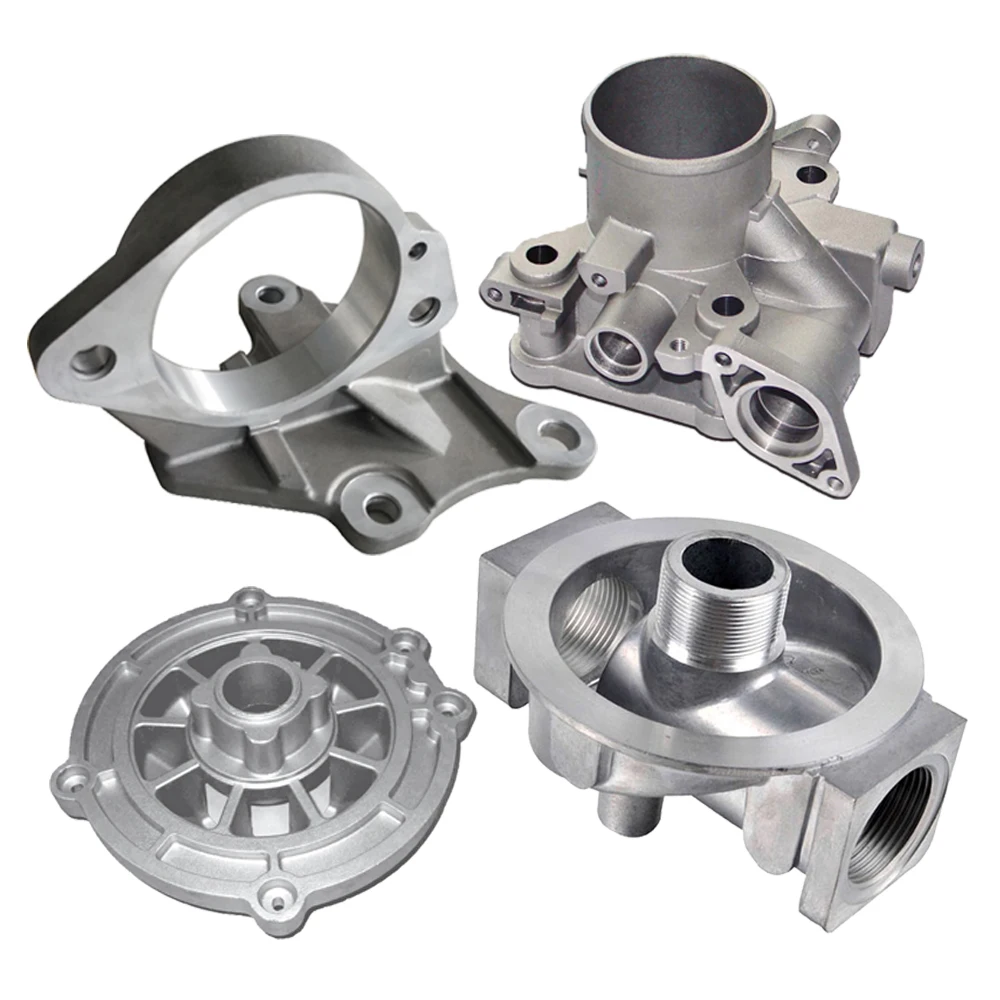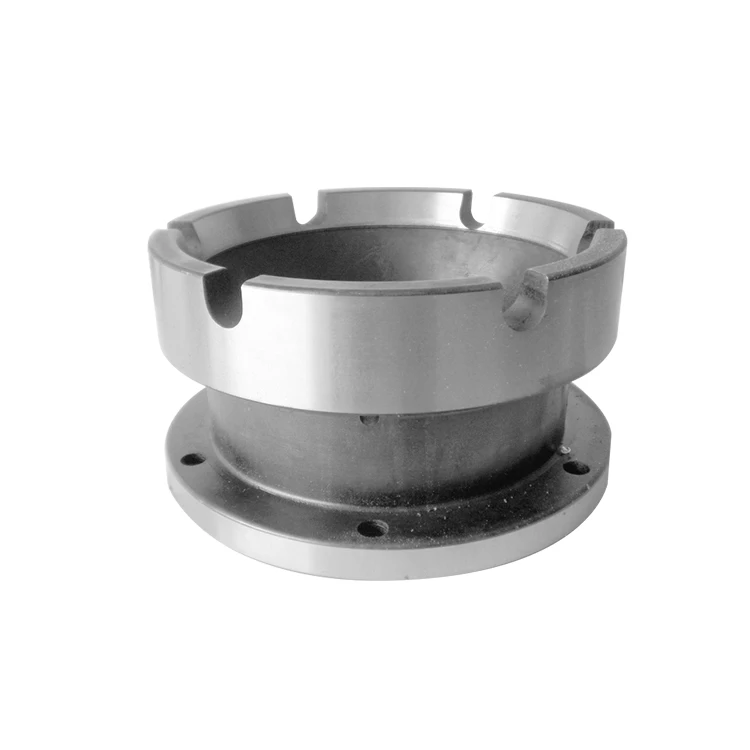The Function of Aluminum Foundries in Advancing Lightweight Manufacturing Solutions
Light weight aluminum factories substantially add to the development of light-weight manufacturing services. Their ingenious spreading technologies produce high-strength, light-weight parts necessary for sectors such as auto and aerospace. This advancement not just boosts product efficiency however additionally promotes sustainability via using recycled materials. As these factories adjust to emerging methods and technologies, they pave the way for future developments in producing effectiveness and ecological duty. What lies in advance in this transformative trip?
The Benefits of Lightweight Materials in Manufacturing
As markets progressively seek performance and sustainability, the fostering of lightweight products in manufacturing has become a necessary technique - Aluminum Casting Company. These materials, specifically light weight aluminum and composites, provide various advantages that improve production procedures and item efficiency. Mainly, their reduced weight contributes to decrease energy intake throughout transport and operation, resulting in significant expense financial savings
Lightweight materials assist in the layout of even more facility geometries, enabling for greater technology in product development. This adaptability frequently causes boosted functionality and efficiency, accommodating the developing needs of modern-day consumers.
Furthermore, making use of light-weight materials can improve the longevity of items due to their resistance to deterioration and exhaustion. This resilience not only minimizes maintenance costs yet likewise sustains sustainability efforts, as longer-lasting products add to less waste. To sum up, the advantages of light-weight products are pivotal in driving efficiency, technology, and ecological obligation in production.
Technologies in Aluminum Spreading Technologies
Current improvements in light weight aluminum spreading modern technologies are reinventing the production landscape, specifically in the manufacturing of lightweight components. Innovations such as high-pressure die casting and vacuum die spreading have greatly enhanced the accuracy and surface coating of aluminum components - Aluminum Foundry. These techniques allow for the creation of complicated geometries while reducing material waste and boosting mechanical properties

Furthermore, the execution of real-time monitoring systems ensures high quality control throughout the spreading procedure, leading to more regular item results. Collectively, these technologies not just boost the efficiency of aluminum parts however also support the industry's shift towards even more sustainable production methods.
Applications of Aluminum Parts in Various Industries
While light weight aluminum components have long been used in numerous markets, their convenience and light-weight residential properties remain to drive ingenious applications throughout sectors such as vehicle, aerospace, and building. In the automotive industry, light weight aluminum is increasingly made use of for engine blocks, wheels, and body panels, improving gas efficiency and efficiency. Aerospace suppliers utilize light weight aluminum for aircraft frameworks and parts, utilizing on its strength-to-weight ratio to boost fuel economic situation and haul ability.
In the building and construction market, light weight aluminum is favored for home window structures, roof covering, and architectural components, providing toughness and resistance to corrosion while lowering total building weight. In addition, the electric and electronic devices industries take advantage of light weight aluminum's conductivity and lightweight nature, using it in electrical wiring, enclosures, and warm sinks. These diverse applications highlight the essential function of aluminum elements, which not just satisfy sector needs but additionally add to improvements in item style and functionality across numerous fields.
Sustainability and Power Performance in Aluminum Foundries
The light weight aluminum shop industry plays an read more essential duty in advertising sustainability and energy efficiency, especially as demand for lightweight components proceeds to grow throughout numerous markets. Factories are significantly embracing ecologically pleasant methods, such as utilizing recycled aluminum, which considerably reduces energy intake and greenhouse gas discharges compared to key aluminum manufacturing.
Furthermore, advancements in casting modern technologies boost power effectiveness by maximizing the melting processes and lowering waste. Methods like die casting and investment spreading enable for accurate material use, minimizing excess and scrap.
In addition, numerous shops are purchasing sustainable energy resources to power operations, even more lowering their carbon footprint. Carrying out power administration systems enables foundries to boost and keep track of energy usage, ensuring they run at peak efficiency.

Future Trends in Lightweight Production Solutions
Exactly how will arising technologies shape the future of lightweight manufacturing solutions? Advancements such as sophisticated materials, automation, and additive production are established to redefine manufacturing procedures. The combination of wise manufacturing innovations, consisting of the Internet of Points (IoT) and man-made intelligence (AI), will allow real-time surveillance and optimization, boosting performance and reducing waste.

As sustainability proceeds to be a paramount issue, light-weight remedies will progressively concentrate on recycling and recycling materials, lining up with circular economic situation principles. This evolution in light-weight manufacturing will certainly not just improve product performance however likewise contribute to environmental objectives, making certain that the sector remains affordable in a rapidly altering market landscape.
Frequently Asked Concerns
Exactly How Do Light Weight Aluminum Foundries Make Certain Top Quality Control in Production?
Aluminum foundries assure high quality control in production with extensive screening, standardized treatments, and constant monitoring - Aluminum Foundry. They carry out sophisticated innovations and proficient personnel to keep uniformity, decrease defects, and meet industry standards throughout the production process
What Are the Key Challenges Encountered by Light Weight Aluminum Foundries?
Aluminum shops deal with obstacles such as changing resources costs, preserving production performance, guaranteeing consistent top quality, adapting to technological advancements, and meeting environmental regulations, all of which influence their overall operational efficiency and competition in the marketplace.
Just How Does Light Weight Aluminum Recycling Influence Foundry Workflow?
Aluminum recycling considerably improves foundry operations by decreasing basic material prices, minimizing energy usage, and lowering environmental effect. This Discover More Here sustainable method makes it possible for shops to improve efficiency while meeting enhancing need for lightweight, high-performance light weight aluminum products.
What Abilities Are Required for Workers in Aluminum Foundries?
Employees in light weight aluminum shops require skills in metallurgy, machining, quality assurance, and safety techniques. Proficiency in operating equipment, understanding alloy homes, and analytical are likewise vital for effective production and keeping high safety and security requirements.
How Do Light Weight Aluminum Foundries Take Care Of Waste Administration?
Light weight aluminum foundries handle waste with recycling scrap steel, using efficient waste partition techniques, and adhering to ecological laws. They carry out lasting techniques to lessen landfill contributions, making sure that hazardous materials are dealt with sensibly.
Light weight aluminum shops greatly add to the evolution of light-weight manufacturing solutions. Current innovations in aluminum spreading modern technologies are changing the production landscape, especially in the production of light-weight elements. While aluminum components have actually long been utilized in different sectors, their versatility and light-weight residential or commercial properties proceed to drive ingenious applications throughout markets such as vehicle, aerospace, and building and construction. Additionally, the electrical and electronics sectors profit from light weight aluminum's conductivity and light-weight nature, using it in wiring, enclosures, and heat sinks. The aluminum factory sector plays a critical function in promoting sustainability and energy performance, specifically as demand for lightweight parts proceeds to expand across various sectors.